Offerings
Conversations to Feed the Mind and Soul
We offer lectures and workshops that promote conversations on human identity, suffering, and potential, with particular concern for the enduring ethical questions at the heart of human existence.
Many of our offerings provide continuing education (CE's) for psychologists (APA), licensed mental health counselors (LMHC), and licensed independent/clinical social workers (LI/LCSW).
Learn more about the Office of Professional and Continuing Education for additional offerings in higher education, teacher education, and lifelong learners.
Polyphonic Suffering: Reading Shakespeare to Respond to Illness
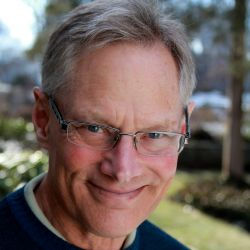
Arthur Frank
Lecture
March 12, 2025 | 7-8:30 p.m.
The question of how to comprehend and respond to suffering is explored with specific reference to Shakespeare’s Richard II.
Living with suffering involves, not exclusively but significantly, a person narrating their suffering and through narrations coming to a renewed understanding of self. What is involved is more than a reassessment of the claims on which a person grounds their identity. Also at issue is the nature of self itself: its substantiality and insubstantiality.
Shakespeare’s plays exemplify how literature can offer resources for living with suffering. First, the plays catalog sufferings in their multiple forms; these forms can be called comic, tragic, and historical. Second, the plays offer a language that expresses suffering without evasion, but that offers consolation. And third, without advising how to live with suffering, Shakespeare’s plots and characters offer models of such living; his characters can be companions in suffering.
WHO SHOULD ATTEND?
- Applied Psychology Professionals
FACILITATOR
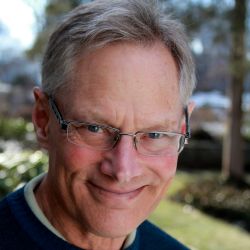
Arthur Frank, professor emeritus at the University of Calgary, specializes in illness experience, humanities in clinical care, and narrative. Since retiring in 2013, he has held positions at VID Specialized University (Oslo) and Columbia University’s Narrative Medicine program. In 2023, he was a Francqui Fellow at the University of Ghent. His influential works explore illness, ethics, clinical care, and storytelling. A Fellow of the Royal Society of Canada, he has received multiple honors, including the Society’s 2008 medal in bioethics and a lifetime achievement award from the Canadian Bioethics Society.
Awakening Wonder: Teaching Philosophy to Teens and Tweens in Texas

Claire Katz
Lecture
February 20, 2025 | 6-7:30 p.m.
Explore how a philosophy summer camp for teens and tweens at Texas A&M represents the culmination of the speaker's 30+ years of teaching, which was shaped by a philosophical pedagogical model, and how this experience transformed the teens and tweens.
The philosophy summer camp for teens and tweens that Katz developed at Texas A&M embodies the educational values and that are foundational to the humanities in general and to philosophy more specifically. Although the camp has had a tremendous impact because philosophy is the content, the specific pedagogical model used, founded on building a community of inquiry, is indispensable. In this presentation, Katz shares how the philosophy summer camp for teens and tweens represents the culmination of her 30+ years of teaching which was shaped by this pedagogy. Katz embeds her response to “why a philosophy summer camp,” very briefly, within a larger discussion of the significance and meaningfulness of a philosophical education, for everyone—including, and maybe especially, those studying in the STEM fields. The speaker then links the impact of this kind of education to the experience of introducing philosophy to young people, through a philosophy summer camp.
WHO SHOULD ATTEND?
- Applied Psychology Professionals
FACILITATOR
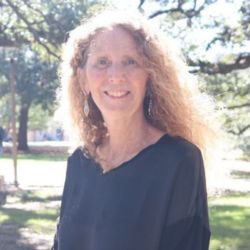
Claire Katz is Professor of Philosophy and Education and Associate Provost for Faculty Advocacy at Texas A&M University. Her research covers contemporary French philosophy, gender, and education. She founded Philosophy for Children (P4C) Texas and the Aggie School of Athens Philosophy Summer Camp. In addition to her work on philosophy, Judaism, and ethics, she is writing a manuscript titled Unrepentant Women: Judaism, Gender, and the Limits of Forgiveness.
Human Strivings in William Shakespeare and Erich Fromm

Sandra Buechler
Learning Group
First Monday of each month, January-May, 2025 | 7-8:30 p.m.
In this offering, we will explore human motivations as depicted by the psychoanalyst Erich Fromm and the playwright William Shakespeare.
In his instructions to actors, Hamlet directs them to “…hold as ‘twere the mirror up to Nature to show Virtue her feature, Scorn her own image, and the very age and body of the time his form and pressure” (Hamlet, Arden, 2016, Act III, Sc.2, 21-24). This course compares the assumptions about human motives implicit in the plays of William Shakespeare and the psychoanalytic and sociological theories of Erich Fromm.
More specifically, it looks at their views on fundamental human motives, empathy, the “other,” sadism, and hope and despair. My premise is that creating a “dialogue” between these two astute observers of human behavior will yield interesting ideas for our discussion.
WHO SHOULD ATTEND?
- Applied Psychology Professionals
FACILITATOR
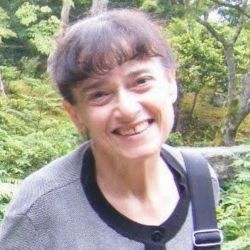
Sandra Buechler, Ph.D. is a Training and Supervising Analyst at the William Alanson White Institute. She is the author of Clinical Values: Emotions that Guide Psychoanalytic Treatment, (Analytic Press, 2004), Making a Difference in Patients’ Lives, (Routledge, 2008), which won the Gradiva award, Still Practicing: The Heartaches and Joys of a Clinical Career, (Routledge, 2012), Understanding and Treating Patients in Clinical Psychoanalysis: Lessons from Literature, (Routledge, 2015) Psychoanalytic Reflections: Training and Practice, (IPBooks, 2017) Psychoanalytic Approaches to Problems in Living, (Routledge, 2019), Poetic Dialogues (IPBooks, 2021), and Erich Fromm: A Contemporary Introduction (Routledge, 2024).
Emerson for Clinicians: Forging the American Psyche

Matthew Clemente
Learning Group
Second Monday of each month, January-May, 2025 | 7-8:30 p.m.
In this monthly learning group, clinicians will engage with the works of Ralph Waldo Emerson, proto-existentialist and one of the great shapers of the American mind.
The “richest ideas” of the nineteenth century, Nietzsche tells us, can be found in the writings of Ralph Waldo Emerson. A towering figure whose influence can be felt not only on the American intellectual tradition but European philosophy (through Nietzsche), the foundations of psychology (through William James), and even contemporary psychoanalysis (in the writings of Adam Phillips, for instance), Emerson’s continue to shape our notions of the self.
Participants in this 5-month Psychological Humanities and Ethics workshop, led by Professor Matthew Clemente, will meet from 7:00 to 8:30 PM EST on the second Monday of each month from January to May to examine the insights and ideas of one of history’s most formative psychologists. The workshop will entail reading Emerson not as a philosopher or literary thinker but as a proto-psychotherapist, a precursor to today’s great theorists. Participants will trace the early understandings of such fundamental psychological concepts as the consciousness, the self, experience, and subjectivity to the works of Emerson and will explore the concepts of self reliance, achievement, solitude, ethics, and desire. By the end of this course, participants will have an in-depth knowledge of the major works and ideas of one of modernity’s most prominent and influential thinkers.
WHO SHOULD ATTEND?
- Applied Psychology Professionals
FACILITATOR
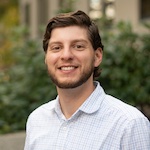
Matthew Clemente is the Director of Research & Curriculum at Center for Psychological Humanities & Ethics and an Assistant Professor of the Practice in the Department of Formative Education at Boston College. He is the Coeditor in Chief of the Journal for Continental Philosophy of Religion and the Codirector of the Guestbook Project, a 501c3 non-profit. He is the Series Editor of two-book series with Routledge/Taylor & Francis and has authored or edited over a dozen books.
There is No Place For Us: Working and Homeless in America

Brian Goldstone
Lecture
Inquire for more information!
Through the stories of five families deprived of stable housing in a gentrifying, increasingly unequal city, this talk examines a new and troubling phenomenon—the dramatic rise of the “working homeless” in America.
In this talk based on his forthcoming book "There Is No Place for Us," Brian Goldstone recounts the experiences of five Atlanta families struggling to remain housed in a gentrifying, increasingly unequal city. Each of them aspires to provide a decent life for their children—and each of them, one by one, joins the ranks of the nation’s “working homeless.” In a country where hard work and determination are supposed to lead to success—or at least stability—there is something scandalous about this phrase. But skyrocketing rents,
low wages, and a lack of tenant rights have produced a startling phenomenon: People working full-time jobs cannot keep a roof over their head, especially in America’s booming cities, where rapid growth is leading to catastrophic displacement. Families are being pushed into homelessness not by a failing economy but a thriving one.
Through a series of narrative portraits, this talk examines the human cost of housing insecurity, following parents and their kids as they go to sleep in cars, or in squalid extended-stay hotel rooms, and head out to their jobs and schools the next morning. These are America’s hidden homeless: omitted from official statistics, and proof that overflowing shelters and street encampments are only the most visible manifestation of a far more pervasive crisis.
WHO SHOULD ATTEND?
- Applied Psychology Professionals
FACILITATOR
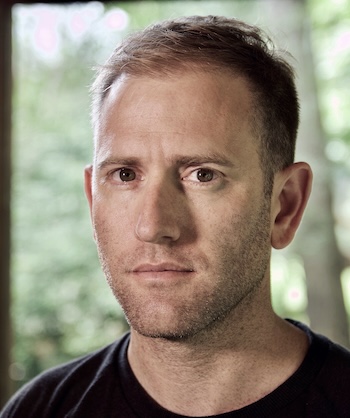
Brian Goldstone is a journalist and National Fellow at New America. He is the author of There Is No Place for Us: Working and Homeless in America, forthcoming from Crown in 2025. He received a Ph.D. in anthropology from Duke University. From 2012 to 2015, he was a Mellon Postdoctoral Fellow at the Society of Fellows in the Humanities at Columbia University. He is the recipient of grants and fellowships from Fulbright, the Wenner-GrenFoundation, the Henry Luce Foundation, and the American Council of Learned Societies. His longform reporting and essays have appeared in Harper’s Magazine, The New Republic, The California Sunday Magazine, Guernica, and Jacobin, among other publications. He lives with his family in Atlanta.
Love & Ideology

Orna Guralnik
Hybrid Lecture
Inquire for more information!
Dr. Guralnik's presentation explores the integration of psychoanalytic and systems approaches to couples therapy, highlighting the impact of socio-political contexts on relationships, all with the help of short video clinical vignettes.
Couples therapy, like individual therapy, can draw on multiple theoretical models of treatment. Dr. Guralnik draws on relational-psychoanalytic and systems approaches to couples work, while keeping in mind the ways in which larger socio-political factors infiltrate the privacy of intimate relationships. The move towards integrating psychoanalytic and cultural theory has introduced a significant change in the psychoanalytic world, responding to large scale ccultural movements in today’s culture and in other academic disciplines.
Dr Guralnik's presentation will include clinical vignettes and videos demonstrating what it means to shift between these paradigms.
WHO SHOULD ATTEND?
- Applied Psychology Professionals
FACILITATOR
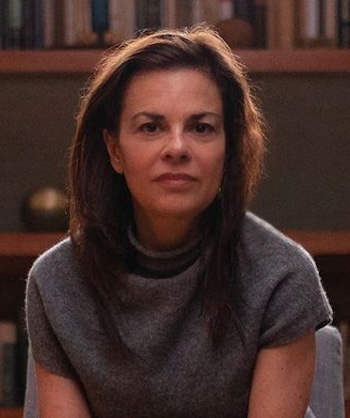
Dr. Orna Guralnik is a psychoanalyst and writer, who serves on the faculty of NYU PostDoc, National Institute for the Psychotherapies, the Stephen Mitchel Center, and the editorial boards of Psychoanalytic Dialogues and Studies in Gender & Sexuality. Her writing centers on the intersection of psychoanalysis, dissociation, and cultural studies. She co-founded the Center for the Study of Dissociation and Depersonalization at the Mount Sinai Medical School, and is a graduate of NYU PostDoc’s psychoanalytic program. She has completed the filming of several seasons of the Docu-series Couples Therapy, airing on SHOWTIME. Dr Guralnik is in private practice in NYC.
Kierkegaard for Clinicians: Finitude, Despair, and the Absurdity of Hope

Matthew Clemente
Online Learning Group
Inquire for more information!
Participants in this 4-month Psychological Humanities and Ethics workshop will meet from 7 to 8:30 pm EST on the third Monday of each month from September to December (Sept. 23, Oct. 21, Nov. 18, Dec. 16) to examine the insights and ideas of one of history’s most formative psychologists, Søren Kierkegaard.
WHO SHOULD ATTEND?
- Applied Psychology Professionals
FACILITATOR
Matthew Clemente is a Lecturer at Boston College specializing in existentialism, philosophy of religion, and contemporary Continental thought. He is the co-author of Technology and Its Discontents: The Perils of Ethical Distancing (2024), and the author of Posttraumatic Joy: A Seminar on Nietzsche’s Tragicomic Philosophy (2023) and Eros Crucified: Death, Desire, and the Divine in Psychoanalysis and Philosophy of Religion (2019).
The Hermeneutics of Attention

D. Graham Burnett
Hybrid Lecture
Inquire for More Information!
The aim of the presentation will be to contextualize and critique the explosive growth of a suite of industries that currently engage in what can best be called "human fracking"—the extraction of value from individuals and populations through the wholesale commodification of the human capacity to care.
Drawing on recent work in the history of science and technology, Professor Burnett will review the changing understanding of human attention in the modern period, in an effort to draw out a distinction between "instrumentalizing" theories of human attentional response (on the one hand) and "irreducible" treatments of the same dynamics/phenomena (on the other). The aim of the presentation will be to contextualize and critique the explosive growth of a suite of industries that currently engage in what can best be called "human fracking"—the extraction of value from individuals and populations through the wholesale commodification of the human capacity to care.
WHO SHOULD ATTEND?
- Applied Psychology Professionals
FACILITATORS
D. Graham Burnett, a historian of science and writer/editor, was a 2013-2014 Guggenheim Fellow at Bard Graduate Center in NYC. He received a 2009 Mellon New Directions Fellowship, focusing on connections between sciences and visual arts. Graduating as salutatorian from Princeton in 1993 and a recipient of the Pyne Prize, Burnett went on to earn a Ph.D. at Cambridge University as a Marshall Scholar. He won the 1999 Nebenzahl Prize in History of Cartography and was involved with the History of Cartography Project. Before joining Princeton in 2001, he taught at Yale, was a Mellon Fellow at Columbia University, and a fellow at the NY Public Library. His interests span natural history, earth and sea sciences, cartography, navigation, oceanography, and ecology.
Practical Wisdom in the Professions

Kristján Kristjánsson
Online Workshop
Inquire for more information!
This course offers a comprehensive overview of the latest developments in professional ethics, foregrounding the idea of practical wisdom (phronesis) as excellence in ethical decision-making.
In today's rapidly evolving world, the demand for ethical decision-making and wise judgment has never been more crucial. This course offers a comprehensive exploration of practical wisdom, or phronesis, within professional practice. Throughout this course, Kristján Kristjánsson, Ph.D. will delve into five key units to provide a holistic understanding of practical wisdom in professional practice with a sound philosophical basis that has been refined through well over a decade of empirical research.
WHO SHOULD ATTEND?
- Applied Psychology Professionals
FACILITATORS
Kristján Kristjánsson, Ph.D. (University of St. Andrews) is Professor of Character Education and Virtue Ethics in the Jubilee Centre for Character and Virtues, University of Birmingham, UK. His research orientation is that of Aristotle-inspired philosophical scrutiny of theories in educational psychology and values education, with special emphasis on the notions of character and virtuous emotions. He has written extensively on themes in moral education, educational psychology, moral philosophy, and professional ethics. He has published over 200 articles in international journals and is the editor of the Journal of Moral Education.
Neo-fascism and the Unregulated Body: sites of persecution and resistance

Sue Grand
Online Workshop
Inquire for more information!
As totalitarianism deploys persecutory moralism, cultural splitting, and the othering of difference, ambiguous "deviant" embodiments become the site of terror and the site of resistance.
This workshop examines the moralizing tropes that have infused fascism. Utilizing the lens of psychoanalysis, history and social critique, we will contextualize the threat of neo-fascism in contemporary U.S.A. In particular, we will look at the sanctified and demonized embodiments around which these movements cohere. Rather than peripheral to persecutory systems, this workshop suggests that a fixation on 'deviant' embodiments is foundational to these systems. We will ask how, and why, these tropes operate. Ambiguous embodiments - in the realm of sex, gender, race, religion, and ethnicity - seem to defy persecutory splitting and threaten these systems with destabilization. Inciting escalating controls and violence, this 'deviance' becomes a site for persecution AND resistance, even as fascism creates its own borderline figurations exempt from its moral splits. Readings will be distributed before the workshop for discussion.
WHO SHOULD ATTEND?
- Applied Psychology Professionals
FACILITATORS
Sue Grand, Ph.D., is faculty at the NYU Postdoctoral Program in Psychoanalysis; faculty, at The Mitchell Center for Relational Psychoanalysis; faculty, the National Institute for the Psychotherapies; a visiting scholar at The Psychoanalytic Assn. of Northern California, and a visiting scholar at the Chicago Center for Psychoanalysis. She is on the editorial boards of Psychoanalytic Dialogues and Psychoanalysis, Culture, and Society, and is the author of The Reproduction of Evil: a Clinical and Cultural Perspective and The Hero in the Mirror: From Fear to Fortitude. She is the co-author of the upcoming book, Trans-generational Transmission: A Contemporary Introduction. She practices in Teaneck N.J. and NYC.
Law, Psychology, and Healing: Exploring Racial, Ethnic, and LGBTQ+ Representation in Education

Hector Adames, Maryam Jernigan-Noesi, & Mary Kelly Persyn
Online Lecture
Watch the full lecture today!
Despite their purported intent to protect children, measures such as curriculum bans, 'don't say gay' laws, and book bans disproportionately harm the most vulnerable among us—by merging interdisciplinary insights from law and psychology, we unravel these policies' intricate impact, unveiling the hidden repercussions on our youth's mental health and well-being.
The history of institutional attempts to reform curricula to be more inclusive and representative of the student body extends back to at least the 1960s when early efforts were called “multiculturalism.” Even as United States demographics have diversified to the point that no ethnic or racial group forms a majority among its schoolchildren, the battle to exclude comprehensive education that includes and represents all ethnic, racial, and LGBTQ+ identities has become increasingly fraught and widespread. Political and partisan voices favoring exclusive curriculum and “Don’t Say Gay” rules argue that including all identities does harm to White youth who are made to feel “guilty” and to straight, cisgender youth who need protection from “sexual materials” that could harm them. From a legal perspective, removing ideas and materials from the curriculum for political reasons is unconstitutional. However, psychological research suggests that the actual harm doesn't originate from these arguments but rather from the inherent act of exclusion.We offer insights and suggestions for legal action and clinical practice.
WHO SHOULD ATTEND?
- Applied Psychology Professionals
FACILITATORS
Dr. Hector Y. Adames (he, him, el), received his doctorate in Clinical Psychology from Wright State University and completed his APA predoctoral internship at Boston University School of Medicine. By training, he is a neuropsychologist and currently a Full Professor in the College of Professional Psychology at The Chicago School, where he co-founded and co-directs the Immigration, Critical Race, and Cultural Equity Lab.
Dr. Maryam Jernigan-Noesi is a licensed psychologist, educator, and organizational consultant with over two decades of professional experience. She consults with various organizations to offer initial assessments and implement strategic goals to increase diversity and engage in equitable policies and practices that promote and sustain inclusive work environments.
Mary Kelly Persyn, Esq., is the founder and principal attorney of Persyn Law & Policy and serves as Vice President of Legal Affairs for Boys & Girls Clubs of San Francisco. In her work as an appellate attorney and child advocate, she focuses on the toxic impact of adversity on children and youth and the potential of positive and compensatory experiences to moderate that harm.
The Fascist Turn: Race and Gender in Totalitarian Regimes

Sue Grand, Komal Choksi
Online Lecture
Inquire for more information!
Querying the fascist turn, the speakers illuminate the raced and gendered bedrock of American totalitarianism.
As citizens, we face a global turn towards fascism. How do we understand the popular appeal of fascism? How do we empower our resistance? This meeting applies a social-psychoanalytic lens to these questions. In particular, we explore the deep psycho-social structure of totalitarian splitting. We argue that race and gender are bedrock to that structure. The racing and gendering of fascism: these themes will be linked to neoliberalism, to wealth concentration, social alienation, our colonial legacies, and the decay of liberal democracy. We will link these issues to gun culture and Christian nationalism. We will argue that fascism has always been with us in the United States -- in myriad ways, largely obscured, forgotten, and invisible to whiteness.
WHO SHOULD ATTEND?
- Applied Psychology Professionals
FACILITATORS
Sue Grand, Ph.D., is faculty at the NYU Postdoctoral Program in Psychoanalysis; faculty, at The Mitchell Center for Relational Psychoanalysis; faculty, the National Institute for the Psychotherapies; a visiting scholar at The Psychoanalytic Assn. of Northern California, and a visiting scholar at the Chicago Center for Psychoanalysis. She is on the editorial boards of Psychoanalytic Dialogues and Psychoanalysis, Culture, and Society, and is the author of The Reproduction of Evil: a Clinical and Cultural Perspective and The Hero in the Mirror: From Fear to Fortitude. She is the co-author of the upcoming book, Trans-generational Transmission: A Contemporary Introduction. She practices in Teaneck N.J. and NYC.
Komal Choksi, Ph.D., is a clinical psychologist in full-time private practice in New York City and an analytic candidate at NYU Postdoctoral Program in Psychotherapy &Psychoanalysis. She is a contributing author of the book Freud Along the Ganges: Psychoanalytic Reflections on the People and Culture of India, which was a recipient of the Gradiva Award. Her clinical and writing interests lie in psychoanalytic and sociohistorical perspectives on personal and collective trauma, gender, and coloniality.
Flourishing in the Digital Age

Tom Harrison
In-person Reception & Hybrid Lecture
Inquire for more information!
Professor Harrison will offer an overview of recent research investigating the impact of new and emerging digital technologies on the character and moral development of adolescents, along with exploring how we might support adolescents to develop digital wisdom.
In this presentation, followed by a question-and-answer forum, Professor Tom Harrison will offer an overview of the Jubilee Centres’ and his own recent research investigating the impact of new and emerging digital technologies on the character and moral development of adolescents. Professor Harrison will outline some of the moral misdemeanors regularly perpetuated and/or experienced by adolescents and how these negatively impact human flourishing. Following this, Professor Harrison will explore how adolescents can be supported to develop digital-wisdom – the ability to ‘do the right thing at the right time whilst using digital technologies’. Research is starting to show how digital-wisdom education can mitigate some of parents’, teachers’, and wider societal concerns about the impact of digital technologies on the health and well-being of adolescents growing up in the digital age.
WHO SHOULD ATTEND?
- Applied Psychology Professionals
FACILITATORS
Tom Harrison, Ph.D., is the Deputy Pro Vice Chancellor for Education Innovation at the University of Birmingham. He is also the Deputy Director of the Jubilee Centre for Character and Virtues. Tom is an HEA Principal Fellow, National Teaching Fellow, and Secretary and Trustee for the Society for Educational Studies (SES). Tom Harrison’s specialist interests are innovation in education, character education, graduate attributes, and digital wisdom. Tom researches, publishes, and gives presentations in the UK and Internationally on these topics as well as developing resources and training programs for schools, the voluntary sector, and other organizations. His most recent book is Thrive – how to cultivate character so your children can flourish online won the IFFD Global Award.
Melancholic Joy In An Age Of Despair

Brian Treanor
Online Workshop
Inquire for More Information!
This event will take up philosophical and literary accounts of lived experience, focusing on the ways in which we might cultivate a way of seeing and experiencing that might help to inure us against the temptation to despair.
In the most general sense, Melancholic Joy is about how to contend with the possibility that the rational response to reality is despair. Working with engaging and accessible examples, diverse expressions of poetic and literary insight, and clear philosophical arguments, Dr. Brian Treanor offers an honest assessment of the human condition. It is one that unflinchingly acknowledges both the everyday frustrations and extraordinary horrors that counsel despair and the seemingly inexhaustible opportunities for joy and wonder that suggest the possibility of something beyond despair. The point is to see both aspects of reality clearly. Denying or dismissing the possibility of despair is a fool’s errand, first because there are legitimate reasons for despair, and second because much despair is not rooted in reasons at all, but rather in a kind of global mood or attunement.
However, remaining insensitive to the more salutary aspects of reality is its own kind of failure-to-see, because beauty and goodness are happening everywhere, whether it is noticed or not. Dr. Treanor's goal, then, is not to argue against despair (because there are good arguments for it, and because emotionally rooted forms of despair are not vulnerable to reason at all); rather, the goal is to be trained to see the full picture, the beauty as well as the brutality, and then to cultivate habits that maximize the former while dealing with the latter.
WHO SHOULD ATTEND?
- Applied Psychology Professionals
FACILITATOR
Dr. Brian Treanor is a professor of philosophy at Loyola Marymount University, where he has won numerous teaching awards and held the Charles S. Casassa SJ Chair, the Taylor Chair in Philosophy, and the Daum Chair in the Liberal Arts. His journey to academia was long and atypical. Having dropped out of college to move to Japan, he eventually completed undergraduate studies at UCLA, after which he spent the better part of a decade traveling and engaged in serial autodidactism. He completed graduate studies at Boston College. He is the author or editor of ten books, including: Melancholic Joy (Bloomsbury 2021), Philosophy in the American West (Routledge 2020), Carnal Hermeneutics (Fordham 2015), Emplotting Virtue (SUNY 2014), and Interpreting Nature (Fordham 2013).
Erring Together: Some Notes On Distortion, Art, And Others

Ben Lerner
Hybrid Lecture
Inquire for More Information!
This talk will consider some of the possibilities of aberrant perception–how common auditory and visual distortions, for instance, allow us to experience the constructedness and messiness of the human sensorium.
In this talk, poet and novelist Ben Lerner will consider some of the possibilities of aberrant perception – how common auditory and visual distortions, for instance, allow them to experience the constructedness and messiness of the human sensorium. What are some of the aesthetic and social possibilities opened up by hearing the limitations of their hearing or seeing the shared blindspots in their sight? What would it mean to ground the teaching of art and literature in an awareness of the ways they err together? Lerner's goal is to arrive at an optimistic reading of Niklas Luhmann’s quote that “communication is improbable”-- to refresh the wonder before the fact that there are moments, however fleeting, of common sense.
WHO SHOULD ATTEND?
- Applied Psychology Professionals
FACILITATOR
Ben Lerner is the author of four books of poetry (The Lichtenberg Figures, Angle of Yaw, Mean Free Path, and The Lights), three novels (Leaving the Atocha Station, 10:04, and The Topeka School), and a work of criticism, The Hatred of Poetry. He has published several collaborations with artists, including Blossom (with Thomas Demand) and The Snows of Venice (with Alexander Kluge). His essays can be found in Harper's, Poetry, The London Review of Books, The New York Review of Books, and The New Yorker. His books have been translated into more than twenty languages. Lerner has received fellowships from the Fulbright, Guggenheim, Howard, and MacArthur Foundations. He's been a finalist for the Pulitzer Prize (fiction), the National Book Award (poetry), and the National Book Critics Circle Award (fiction). Recent honors include the Los Angeles Times Book Prize for The Topeka School, which was named one of the ten best books of the year by The New York Times.
Non-Reductive Psychological Accounts of Religious Experience

Ariel Glucklich
Hybrid Lecture
Inquire for More Information!
This lecture will explore psychoanalytic understandings of religious phenomena.
Religious phenomena that include rituals and written accounts of spiritual experiences have been subject to psychological analysis for a long time. Some, like those of Freud, have been discounted as highly reductive and prejudicial while some like those of Jung have been discounted as no more than spiritual accounts in another form. The approach of William James has attracted more serious and measured consideration by scholarship interested in ways of analyzing religious phenomena using psychological tools. Dr. Ariel Glucklich's approach since the mid-1990s has been to simplify the task by focusing on religious phenomena that are both embodied and basic. By basic, he refers to affect-based events. This has included a study of the uses of pain in religious life and more recently, the uses of pleasure (both embodied and mental). The descriptive component of this work is both rich and simple: there is a multitude of examples in religious life for voluntary and self-inflicted pain geared to the production of altered states of consciousness. There are just as many examples of the use of pleasure, both discursive and ritual, in religious documents and in anthropological descriptions.
WHO SHOULD ATTEND?
- Applied Psychology Professionals
FACILITATOR
Dr. Ariel Glucklich is a kibbutz-born Israeli who immigrated to the United States after the 1973 Middle East War. He majored in Philosophy and Religion at Claremont Men’s College and pursued doctoral studies in Hinduism and Judaism at Harvard where he received a PhD in 1984. He has taught at the Hebrew University in Jerusalem, Claremont Graduate School, Pomona College, Emory University, St. Lawrence University and, finally, Georgetown. His early publications, both articles and books, focused on the normative (dharmic) traditions of Hinduism. Later he became interested in phenomenology and ritual aspects of Hinduism before broadening his interest to cover psychological studies of religion—specifically pain and pleasure. This has included bio-psychological and evolutionary-adaptive approaches to the role of affect in religious experience as well as the role of religion in social and cultural evolution.
Navigating Inequity and Advancing Equitable Change at Scale

Kimberlyn Leary
Hybrid Lecture
Inquire for More Information!
In this talk, Dr. Kimberlyn Leary shares her experience in the Biden-Harris Administration guiding the pursuit of equity in the public sector.
This event is co-sponsored by the Mental Health Counseling Urban Scholars Program & Donovan Urban Teaching Scholars Program & the Center for Psychological Humanities & Ethics
Dr. Kimberlyn Leary will share her experience in the Biden-Harris Administration's pursuit of equity in the public sector in this talk. Discover how the Administration advanced racial equity and supported underserved communities through comprehensive efforts and executive orders. The talk also covers the response from corporate America, philanthropy, and business entities, who committed to more than $200B in equity-focused initiatives. However, progress has faced challenges, including claims of reverse discrimination and new voting restrictions. Join us to learn about the lessons learned from these initiatives and future pathways for progress despite headwinds, including the recent Supreme Court ruling on affirmative action.
WHO SHOULD ATTEND?
- Applied Psychology Professionals
- K-12 Administrators
- K-12 Teachers
FACILITATOR
Kimberlyn Leary, Ph.D., MPA is a senior vice president at the Urban Institute. She is an associate professor of psychology at the Harvard Medical School, an associate professor in the Department of Health Policy and Management at the Harvard T.H. Chan School of Public Health, and a senior fellow at the Bloomberg Center for Cities at Harvard University. She served as an adviser to the Obama White House, working with the White House Council on Women and Girls to develop the Advancing Equity initiative, which focused on improving life outcomes for women and girls of color. Dr. Leary also served as a senior policy advisor to the Biden White House at the Domestic Policy Council and as a senior equity fellow at the Office of Management and Budget, supporting implementation of the administration’s executive orders on equity. Dr. Leary has a Ph.D. in clinical psychology from the University of Michigan, an M.P.A. from the Harvard Kennedy School, and an A.B. from Amherst College.
On Care in Mental Health: Suffering, Healing, and the Human Condition

Arthur Kleinman
Hybrid Lecture
Watch the full lecture today!
This presentation sets out a vision for making care and caregiving the centerpiece of health and mental health systems and draws on Dr. Kleinman’s recent book, The Soul of Care.
In Fall 2023, Daedalus, the journal of the American Academy of Arts & Sciences, is publishing an issue on Mental Health edited by Dr. Kleinman that includes a paper he authored together with Caleb Gardner, MD on care and caregiving for mental distress and illness. This talk draws upon that paper and discusses evidence for reimagining domestic and global mental health care in light of major developments that demonstrate the limits of biological treatments, the extraordinary success of psychotherapy provided by community healthcare workers, the widespread dissatisfaction with diagnostic systems and mental healthcare policies and programs, and the rapid development of social technologies aimed at improving self-management of personal problems - all of which underline the importance of rethinking the entire field of mental health. This talk will participate in such a conversation and make the central point that health and mental health systems fail to privilege care and caregiving and are dominated instead by financial, bureaucratic and other structural forces that undermine healing and convert suffering from a fundamental aspect of the human condition to an algorithmic issue for technical manipulation.
The COVID pandemic demonstrated worldwide the importance of mental health. It also has been associated with a substantial diminution in stigma and a proliferation of voices of those who suffer from “an unquiet mind” and an equally unquiet social world. This presentation sets out a vision for making care and caregiving the centerpiece of health and mental health systems and draws on Dr. Kleinman’s recent book, The Soul of Care.
WHO SHOULD ATTEND?
- Applied Psychology Professionals
FACILITATOR
Arthur Kleinman, MD is Rabb Professor of Anthropology, Harvard University and Professor of Global Health and Social Medicine and Psychiatry, Harvard Medical School. Kleinman is a leading figure in medical anthropology, cultural psychiatry, global health, social medicine, and medical humanities. His books include What Really Matters; Rethinking Psychiatry; The Illness Narratives; and The Soul of Care. He is the editor of an issue of Daedalus on Mental Health and also edited the first World Mental Health Report. Kleinman is a member of the National Academy of Medicine and the American Academy of Arts and Sciences. He recently was elected an Honorary Academician of Academic Sinica in Taiwan. Amongst his awards is the Franz Boas Award from the American Anthropological Association, a Guggenheim Fellowship, the Tanner Lectures, and an Honorary Doctorate from York University in Canada. Kleinman currently directs a project on Social Technology for Global Aging and Eldercare in China.
Gender Transition Between Life and Death

Patricia Gherovici
Hybrid Lecture
Inquire for More Information!
My presentation focuses on the suicidal tendencies of analysands with "gender disorders" who "find themselves" in a trans identity.
Starting from the case of a teenager who claimed to be "oppressed by gender” after making a spectacular suicidal gesture, I want to explore a movement from a first death to a second death. Paradoxically such a position allows us to consider death as a life force leading to a re-birth.
Clinical work opens a path towards figuring out how to live with the death drive, which, in the end, renders life possible. In this context, death emerges not as the opposite of life but rather as a condition for life. My presentation focuses on the suicidal tendencies of analysands with "gender disorders" who "find themselves" in a trans identity. Reference will be made to Freud's 1920 case of the young homosexual woman and to my work on trans identity as an "act".
WHO SHOULD ATTEND?
- Applied Psychology Professionals
FACILITATOR
Patricia Gherovici, Ph.D, is a psychoanalyst recipient of the Sigourney Award for her clinical and scholarly work with Latinx and gender variant communities. Her single-authored books include The Puerto Rican Syndrome (Gradiva Award and Boyer Prize; Other Press, 2003), Please Select Your Gender (Routledge, 2010), and Transgender Psychoanalysis (Routledge, 2017). She edited with Manya Steinkoler Lacan On Madness: Madness Yes You Can’t (Routledge, 2015); Lacan, Psychoanalysis and Comedy (Cambridge University Press, 2016); and Psychoanalysis, Gender and Sexualities: From Feminism to Trans* (Routledge, 2023); and with Chris Christian Psychoanalysis in the Barrios: Race, Class, and the Unconscious (Gradiva Award and the American Board and Academy of Psychoanalysis Book Prize; Routledge, 2019.)
Merleau-Ponty For Clinicians: Restorying/Restoring The “Body” And Incarnation Of Narratives

M. Mookie C. Manalili
Online Learning Group
Inquire for More Information!
Participants in this workshop will explore the significant works of Maurice Merleau-Ponty (1908-1961) a French psychologist, philosopher, and public intellectual.
This workshop series will explore the embodied subject and re-think our psychological understanding of the “body” and “experience”. We will explore the significant works of Maurice Merleau-Ponty (1908-1961): a French psychologist, philosopher, and public intellectual. Merleau-Ponty expanded phenomenology towards embodiment and incarnation challenging the mind/body dualism of his predecessors. In a society that splits between a person as an “unseen spirit (or mind)” - or a person as only what can be observed and measured - Merleau-Ponty opens up a flesh that is porous, alive, creating, and united. Put quite simply, we exist as an “I can” rather than an “I think”.
WHO SHOULD ATTEND?
- Applied Psychology Professionals
This learning group will meet virtually on the second Wednesday of each month from September to June. The dates are listed below:
- 09/13/23, 10/11/23, 11/15/23, 12/13/23, 01/10/23, 02/14/23, 03/13/23, 04/10/23, 05/08/23, 06/12/23
FACILITATOR
M. Mookie C. Manalili is a psychotherapist, professor, and researcher interested in suffering, embodiment, meaning, narratives, trauma, memory, and ethics. Mookie is a psychotherapist in a private group practice, utilizing narrative therapy, psychoanalytic approaches, mindfulness traditions, and trauma/stress neuroscience. Additionally, he is also a part-time faculty for the School of Social Work, research consultant for the Morality Lab and the Center for Psychological Humanities and Ethics, and co-chair of Psychology and the Other Conference at Boston College.
Dostoevsky for Clinicians: Murder, Madness, and the Conflicted Human Heart

Matthew Clemente
Online Learning Group
Inquire for more information!
Participants in this Psychological Humanities and Ethics workshop will explore the works of one of literature’s greatest figures in order to delve into the spiritual and psychological questions that arise from his books.
WHO SHOULD ATTEND?
- Applied Psychology Professionals
The learning group will be virtually on the following dates:
- 10/30/23, 11/27/23, 12/18/23*, 01/29/24, 02/26/24, 03/25/24, 04/29/24, 05/20/24*, 06/24/2024
*Please notes these dates have changed due to Monday holidays.
FACILITATOR
Matthew Clemente is a Fellow in the Center for Psychological Humanities and Ethics, a Lecturer at Boston College specializing in existentialism, philosophy of religion, and contemporary Continental thought, and the author of Technology and Its Discontents: The Perils of Ethical Distancing (with David M. Goodman, Oxford University Press, 2024), Posttraumatic Joy: A Seminar on Nietzsche’s Tragicomic Philosophy (Routledge, 2023) and Eros Crucified: Death, Desire, and the Divine in Psychoanalysis and Philosophy of Religion (Routledge, 2019). He serves as the Coeditor in Chief of the Journal of Continental Philosophy and Religion (Brill) and the Codirector of the Guestbook Project, a 501c3 nonprofit.
Existential Ethics: Recovering from Narcissism

Robin R. Chalfin, Robert Fox
Online Workshop
Inquire for more information!
In this workshop, ethics emerges as a set of paradoxes challenging the selfless-selfish binary by exploring dialectical tension and hermeneutical movement as essential to ethical thinking and action.
WHO SHOULD ATTEND?
- Applied Psychology Professionals
FACILITATOR
Robin Chalfin, MSW, LICSW is a practicing psychotherapist of 25 years, teaching, training, and writing from feminist and queer disciplines, trauma studies, and existential-psychoanalytic praxis. As adjunct faculty at Lesley University and board member at the New England Center for Existential Therapy, she is devoted to developing embodied and liberatory modes of human understanding and relatedness. In her work, she draws on different lineages of knowledge, including her undergraduate training in Women’s Studies, graduate clinical social work training at Smith College, and post-graduate fellowship at the Victims of Violence program with Dr. Judith Herman, followed by advanced professional training at the Institute for Existential-Psychoanalytic Therapy.
Robin Chalfin will be joined by Robert Fox.
And We Shall Be Changed: Radical Ethics for the Humanistic Disciplines

Donna Orange
Hybrid Lecture
Inquire for More Information!
This lecture explores the notion that holiness does not belong to me, but occurs in responsiveness to the other’s suffering.
Watch the full video here
Workshop made possible by the generosity of the John Templeton Foundation
WHO SHOULD ATTEND?
- Applied Psychology Professionals
FACILITATOR
Donna Orange, Ph.D., Psy.D. teaches at NYU, Institute for the Psychoanalytic Study of Subjectivity, and in private study groups. She also offers clinical consultation/supervision in these institutes and beyond. Her recent books include Thinking for Clinicians: Philosophical Resources for Contemporary Psychoanalysis and the Humanistic Psychotherapies (2010), The Suffering Stranger: Hermeneutics for Everyday Clinical Practice (2011), and most recently, Psychoanalysis, History, and Radical Ethics: Learning to Hear (2020).
Unjustifying Pain: Levinas’s Philosophy of Useless Suffering

Eric Severson
Online Workshop
Inquire for More Information!
This seminar provides a psychologically-framed exegesis of Emmanuel Levinas’s article “Useless Suffering,” in which he suggests that suffering can be “meaningful in me, useless in the other.”
Workshop made possible by the generosity of the John Templeton Foundation
WHO SHOULD ATTEND?
- Applied Psychology Professionals
FACILITATOR
Eric Severson, Ph.D. is an associate teaching professor of philosophy at Seattle University and a philosopher specializing in the work of Emmanuel Levinas. He is author of Before Ethics (Kendall Hunt, 2021), Levinas's Philosophy of Time (Duquesne University Press, 2013) and Scandalous Obligation (Beacon Hill Press, 2011), and editor of eight other books. Severson teaches philosophy at Seattle University.
Social Psychoanalysis: Theory and Practice

Dr. Lynne Layton
Hybrid Lecture
Watch the full lecture today!
This presentation speaks to current social psychoanalytic theory and practice and offers contributions from those realms to the broader project of theorizing the psychosocial in this historical and sociopolitical moment.
WHO SHOULD ATTEND?
- Applied Psychology Professionals
FACILITATOR
Dr. Lynne Layton has a Ph.D. in Comparative Literature and in Clinical Psychology. She is a graduate of and has taught and supervised at the Massachusetts Institute for Psychoanalysis and she is a Corresponding Member of the Beth Israel Deaconess Medical Center Psychiatry Department at Harvard Medical School. She is the author of the 2020 book, Toward a Social Psychoanalysis: Culture, Character, and Normative Unconscious Processes, winner of a 2021 book award from the American Academy and Board of Psychoanalysis.
Dr. Layton will be joined by respondents Dr. Kathleen Pape of Seattle University and Dr. Grin Lord of the University of Washington.
Forgiveness, Gratitude and Hope: A Positive Psychological, Philosophical and Theological Examination

Dr. Liz Gulliford
In-Person Lecture
Inquire for More Information!
This lecture examines forgiveness, gratitude, and hope from multiple perspectives, drawing from literature in philosophy, theology, and psychology.
WHO SHOULD ATTEND?
- Applied Psychology Professionals
FACILITATOR
Dr. Liz Gulliford is currently Associate Professor in Psychology at the University of Northampton, UK. She has carried out extensive conceptual and empirical work in positive psychology and moral education. Dr. Gulliford has a long-standing interest in research on character strengths and virtues, including gratitude, forgiveness, compassion, courage and hope, and her work has been published in a range of journals in psychology, education, and philosophy. She also studied for a BA (now MA) at Trinity College, Oxford (1998).
Dr. Gulliford will be joined by respondent Dr. Steve Sandage of Boston University.
Anger Gaslighting and Affective Injustice

Dr. Shiloh Whitney
Online Lecture
Inquire for more information!
If gaslighting makes its target doubt herself, anger gaslighting makes its target doubt herself about her anger. In this lecture, we will explore how anger gaslighting is a uniquely affective variety of both moral injury and a social injustice.
WHO SHOULD ATTEND?
- Applied Psychology Professionals
FACILITATOR
Dr. Shiloh Whitney is an Associate Professor of Philosophy at Fordham University, a critical phenomenologist, and a feminist philosopher. Whitney is leading efforts to theorize affective injustice and emotional labor. Her book project on affective injustice aims to theorize uniquely affective varieties of injustice: just as epistemic injustices concern knowledge and credibility, affective injustices concern emotions and affective influence. Beginning with a study of the phenomenon of anger gaslighting as a paradigm case, she develops concepts for identifying and evaluating affective injustices and our agency to intervene in them. Affective life, she argues, is a powerful site of political struggle.
Dr. Shiloh Whitney will be joined by respondent Dr. Jerome Veith.
Guilt and Shame in the City: On the Necessities of Moral Legislation

William J. Hendel, J.D.
Online Lecture
Watch the full lecture today!
In this lecture, we will consider how guilt and shame are essential to the success of any polity, how they are formed (and sometimes reformed) both in the community and the individual, and if they are destined to make us ill.
WHO SHOULD ATTEND?
- Applied Psychology Professionals
FACILITATOR
William J. Hendel, J.D. is a teaching fellow and Ph.D. student in the Department of Philosophy at Boston College who specializes in ethics, political philosophy, and aesthetics. He is the co-editor of misReading Plato with Matthew Clemente and Bryan Cocchiara (Routledge, 2022).
Unruly Therapeutic: Black Feminist Space-making and Living the Change We Want to Be

Foluke Taylor
Online Lecture
Watch the full lecture today!
This presentation/conversation will explore how Black feminisms provide a foundation from which it becomes more possible to speak and write of interconnection – spirited life, soul, natural mystics blowing through the air – and of our engagement with all of this in therapeutic practice.
In this lecture, Foluke Taylor will explore possibilities for practitioners interested in Black feminist infused practice. The lecture is based on her most recent book—an ensemble of Black feminist texts and artifacts woven through with genealogies of becoming a therapist. Taylor will be in conversation with psychoanalytic psychotherapist Gail Lewis, and together, they will discuss and expand upon some key ideas and principles of a Black feminist ethic.
Questions to be addressed include:
- What do we miss when we try to fix, settle and keep ourselves in order?
- In what ways is unruly an essential mode for therapeutic projects seeking to survive and remake an anti-black world?
- How are we, as practitioners engaged in therapeutic work, making more living room – space for the emergent and the what is not yet but must be – and why is this important for therapeutic practice?
WHO SHOULD ATTEND?
- Applied Psychology Professionals
FACILITATOR
Foluke Taylor is a therapist* and writer. She is the author of How the Hiding Seek (2018), an experiment in creative writing as intermediary for what might be conceived as separate – human and nature, us and them, mind and body, now and then, fiction and nonfiction. She spent several years growing up in The Gambia before returning to live in the city of London where she was born.
*emphasizing Black feminist modes that create and hold open spaces for the emergence of the yet-to-be and for the therapeutics that call this into being.
Foluke Taylor will be joined by respondent Gail Lewis, PhD.
Ars Vitae: A Dialogue On Psychological Humanities

Dr. Elisabeth Lasch-Quinn
Hybrid Lecture
Watch the full lecture today!
The lecture provides a critique of forms of self-centeredness dominant today and an argument for a new inwardness—the cultivation of an inner life—drawing on ancient wisdom, with particular attention to the insights of Plato and the Neoplatonists.
This lecture explores the concept of ars vitae, Latin for the art of living. It calls on ancient ways of thinking about the enduring question of how to live in order to imagine new ways of addressing our challenges.
Who Should Attend?
- Applied Psychology Professionals
Facilitator
Elisabeth Lasch-Quinn is Professor of History at SU and Senior Fellow at the Institute for Advanced Studies in Culture at the UVA. She is the author of three books: Black Neighbors: Race and the Limits of Reform in the American Settlement House Movement,1890-1945, Race Experts: How Sensitivity Training, Interracial Etiquette, and New Age Therapy Hijacked the Civil Rights Revolution (W. W. Norton, 2001); & Ars Vitae: The Fate of Inwardness and the Return of the Ancient Arts of Living. Editor of three books and author of numerous articles in both scholarly and public venues such as The New Republic and The Hedgehog Review, she has received numerous grants and awards, including a Fulbright fellowship at the University of Rome, Italy.
Camus For Clinicians: Morality, Meaning, And Justice In Confrontation With The Absurd

Matthew Clemente
Online Workshop
Inquire for More Information!
Participants in this four-month Psychological Humanities and Ethics learning group will meet from 7:00 to 8:30 pm ET on the third Thursday of each month from September to December to examine the ideas of one of the 20th century’s most important thinkers. Taking seriously Camus’s moral, political, and psychological insights, this series will offer an in-depth study of his major works and concepts – focusing particular attention on his understandings of absurdity, lucidity, rebellion, desire, and love.
Camus begins The Myth of Sisyphus with the assertion that the problem at the heart of philosophy is the problem at the heart of all psychological life – the problem of suicide. Unless we find a reason to live, he insists, we will be condemned to a life of despair, one which lacks the courage needed to carry on in the face of an unjust and often terrifying world, a life lived without love. And yet, Camus insists, we want to live. We want to love. We want to make our lives not only meaningful but moral. We want to give of ourselves, resist injustice, confront inhumanity, and make the world a more beautiful place.
Participants in this four-month Psychological Humanities and Ethics learning group will meet from 7:00 to 8:30 pm ET on the third Thursday of each month from September to December to examine the ideas of one of the 20th century’s most important thinkers. Taking seriously Camus’s moral, political, and psychological insights, this series will offer an in-depth study of his major works and concepts – focusing particular attention on his understanding of absurdity, lucidity, rebellion, desire, and love.
WHO SHOULD ATTEND?
- Mental health professionals including psychologists and counselors

Matthew Clemente is a Lecturer at Boston College specializing in existentialism, philosophy of religion, & contemporary continental thought. He is the author of Nietzsche on Trauma and Tragedy (2023) & Eros Crucified: Death, Desire, and the Divine in Psychoanalysis and Philosophy of Religion (2019). He has coedited multiple volumes including The Art of Anatheism (2017), misReading Nietzsche (2018), Richard Kearney’s Anatheistic Wager: Philosophy, Theology, Poetics (2018), misReading Plato (2022), & The Routledge International Handbook of Psychoanalysis, Technology, & Subjectivity (2022). He also serves as the Associate Editor of the Journal of Continental Philosophy and Religion (Brill)
Biopolitics: Foucault And Beyond

Ann Pellegrini
Online Workshop
Inquire for more information!
This workshop circles around biopolitics, a concept introduced and developed by French philosopher and historian Michel Foucault.
The Psychological Humanities and Ethics series promotes interdisciplinary conversations focused on human identity, suffering, and potential.
This workshop circles around biopolitics, a concept introduced and developed by French philosopher and historian Michel Foucault. Briefly, biopolitics offers a way to think about how “life” – its organization, management, and optimization – came to be a focus of modern governance from the 17th century forward. Foucault’s analysis of biopolitics (also known as “biopower”) has two important aspects: disciplinary power, which addresses itself to individual bodies, and biopolitical power, whose fundamental unit is population. In this workshop, we will read what Foucault had to say about disciplinary power and biopolitical power in the two books where he introduced these terms: Discipline and Punish and History of Sexuality, Volume I, respectively. To see how he continued to revise and also complicate his own thinking about biopolitics, we will read brief excerpts from his lecture courses at the Collège de France.
Through these readings we will gain an understanding of the relationship between disciplines of the individual and biopolitics of the population. The focus on life – modern states seek to “make live and let die,” Foucault argues – has been accompanied by some of the bloodiest and deadliest conflicts the world has ever seen, including multiple organized genocides. With Foucault and also with resources offered by work in postcolonial studies and critical race studies (Mbembe and Chow), we will seek to make sense of this deadly paradox.
WHO SHOULD ATTEND
- Mental health professionals
- Psychologists and Counselors
Facilitator

Ann Pellegrini
Theory As A Stone: The Decolonial Now

Dr. Stephen Sheehi
Online Lecture
Watch the full video now!
Dr. Stephen Sheehi will consider that the radical acts and practices of those living under oppression and colonization do not create new “futures” but are enacting the decolonial now.
What happens when a renowned theorist is attacked when they dare to enact, even in the most minor way, the principles and implications of their theory? In considering how several settler colonialist societies (past and present) meet psychoanalysis, this presentation explores the full potential of psychoanalytic theory (using Fanon, Martin-Baro, and others) when it is practiced in a way that lives up to the demands that its ethical code puts forth. In doing so, we consider that the radical acts and practices of those living under oppression and colonization do not create new “futures” but are enacting the decolonial now.
Who Should Attend?
- Applied Psychology Professionals
Facilitator
Stephen Sheehi (he/him; Temple, BA/Michigan, Ph.D) is currently the Mary L. Cornille Distinguished Visiting Professor of the Humanities at the Newhouse Center for Humanities at Wellesley College.He is also the Sultan Qaboos Professor of Middle East Studies in Asian and the Middle East Studies Program at William & Mary, where he is the founding Director of the Decolonizing Humanities Project. Prof. Sheehi is author of a number of articles, book chapters, commentaries and books; most recently, his co-authored book with Lara Sheehi, Psychoanalysis Under Occupation: Practicing Resistance in Palestine (Routledge, 2022).
Liberal Political Theory and Radical Ethics: Revisiting Rawls and His Critics

Donna Orange
Hybrid Workshop
Inquire for more information!
This Psychological Humanities and Ethics lecture will study the major critiques of Rawls for his failure to take racial and gender differences into account.
The most prominent theorist of political justice, John Rawls invented and defended a form of social contract theory created under “the veil of ignorance.” This would prevent those creating a just society from knowing how their personal circumstances might structure the basic law, or constitution, they would create. A just society would be one in which any resulting inequalities needed to be adjusted so that these would benefit the least advantaged. This workshop will also study the major critiques of Rawls for his failure to take racial and gender differences into account.
Who Should Attend?
- Psychologists
- Mental health counselors
- Social workers
- Counselors
- Academics
- General public
Presenter

Educated in philosophy, clinical psychology, and psychoanalysis, Donna Orange, PhD, PsyD teaches at NYU Postdoc (New York); IPSS (Institute for the Psychoanalytic Study of Subjectivity, New York); and in private study groups. She also offers clinical consultation/supervision in these institutes and beyond.
Climate Emergency and Radical Ethics: Colonialism, Racial Injustice, and Climate Justice

Donna Orange
Hybrid Lecture
Inquire for more information!
This Psychological Humanities and Ethics lecture will address climate justice to radical ethics by way of psychoanalysis. We consider relevant aspects of psychoanalytic expertise, referring to work on trauma, mourning, and the transformation of trouble into purpose.
Considering historical and emotional causes of climate unconsciousness and of compulsive consumerism, we argue that only a radical ethics of responsibility to be “my other’s keeper” will truly wake us up to climate change and bring psychoanalysts to actively take on responsibilities. Linking climate justice to radical ethics by way of psychoanalysis, we here consider relevant aspects of psychoanalytic expertise, referring to work on trauma, mourning, and the transformation of trouble into purpose.
Who Should Attend?
- Psychologists
- Mental health counselors
- Social workers
- Counselors
- Academics
- General public
Presenter

Educated in philosophy, clinical psychology, and psychoanalysis, Donna Orange, PhD, PsyD teaches at NYU Postdoc (New York); IPSS (Institute for the Psychoanalytic Study of Subjectivity, New York); and in private study groups. She also offers clinical consultation/supervision in these institutes and beyond.
Responsibility and Burnout: Toward a Sabbatical Philosophy of Time

Eric Severson & Rosemary Mulvihill
Hybrid Lecture
Watch the full lecture today!
This Psychological Humanities and Ethics lecture will use a philosophy of time derived from Sabbath observance to address the rampant problem of burnout in helping professions today.
In helping disciplines, much is asked of people who tie their work to the healing, wellbeing, education, and betterment of others. Trauma, chaos, and suffering of all kinds, can exponentially increase the needs of the client, student, or patient. The common experience of burnout is a seemingly inevitable result of binding one’s work to the wellbeing of suffering others. This lecture will use a philosophy of time derived from Sabbath observance to address the rampant problem of burnout in helping professions today.
Who Should Attend?
- Psychologists
- Mental health counselors
- Social workers
- Counselors
- Academics
- General public
Presenter

Eric Severson is a philosopher specializing in the work of Emmanuel Levinas. He is the author of Before Ethics (Kendall Hunt, 2021), Levinas's Philosophy of Time (Duquesne University Press, 2013) and Scandalous Obligation (Beacon Hill Press, 2011), and editor of eight other books. He lives in Kenmore, Washington and teaches philosophy at Seattle University.
Only Connect: Friendship, Suffering, and Character

L. Gregory Jones
Online Lecture
Inquire for more information!
This Psychological Humanities and Ethics lecture will address the interconnections of psychology, philosophy, and theology, in order to recover themes of character and friendship important to human flourishing. This will be conducted synchronously online via Zoom.
We live in a time of ‘lost connections’ in a variety of ways, including the isolation from mental health challenges as well as a distorted focus on individualism. A renewed attention to character and the centrality of friendship can offer connections that help us live well and cope with the inevitabilities of suffering in human life. This Psychological Humanities and Ethics lecture will address the interconnections of psychology, philosophy, and theology, in order to recover themes of character and friendship important to human flourishing.
Who Should Attend?
- Psychologists
- Mental health counselors
- Social workers
- Counselors
- Academics
- General public
Presenter

L. Gregory Jones is President of Belmont University and educated at the University of Denver (B.A. and M.P.A.) and Duke University (M.Div. and Ph.D.). He holds honorary doctorates from Lycoming College and North Carolina Wesleyan University.
Burnout And Rejuvenation: Inner Balance For Mental Health Clinicians

Erika Prijatelj and Tone Stevelj
Online Workshop Series
Inquire for more information!
Mental health care professionals (psychologists, counselors, social workers, and many others) often work in an environment that leads to “burnout.”
Mental health care professionals (psychologists, counsellors, social workers, and many others) often work in an environment that leads to “burnout.” This includes high-level intensity, time constraints, competing demands, lack of control over the work process, and sometimes conflicting roles and relationships with leadership. The recent pandemic has additionally increased the intensity of helplessness, sense of inefficiency, and inability to shut off the therapeutic role. Focusing on other people’s problems can lead mental health providers to lose track of their own personal well-being and that of their families.
Facilitators
Erika Prijatelj and Tone Stevelj
Nietzsche for Clinicians: Learning to Live Between Trauma and Tragedy

Matthew Clemente
Online Workshop
Inquire for more information!
Participants will examine the insights and ideas of one of history’s most formative psychologists. This series examines the insights of Nietzsche on topics of morality, mourning, melancholia, trauma, tragedy, and self-overcoming.
The Psychological Humanities and Ethics series promotes interdisciplinary conversations focused on human identity, suffering, and potential.
This series examines the insights of Nietzsche on topics of morality, mourning, melancholia, trauma, tragedy, and self-overcoming over the course of 5-sessions.
Reading Nietzsche not as a philosopher in the classical sense but a proto-psychoanalyst, a precursor to Freud and Lacan, participants will trace the genesis of such fundamental psychoanalytic concepts as repression, the death-drive, and the Oedipus complex. By the end of this course, participants will have an in-depth knowledge of the major works and ideas of one of modernity’s most prominent and influential thinkers.
CEs for LMHC, APA, and LI/LCSW will be submitted for review to respective credentialing bodies.
WHO SHOULD ATTEND
- Mental health professionals including psychologists and counselors
SCHEDULE DETAILS
Sessions are on the final Thursday of each month from 7:00-8:30PM.
Begins on Jan 27 and ends on May 26, 2022.
Facilitator
Matthew Clemente
#racialtraumaisreal: Assessment and Treatment of the Psychological Consequences of Racism

Dr. Maryam Jernigan-Noesi
Online Workshop
Offering Coming Soon!
This program uses recent and relevant research to facilitate mental health clinicians’ understanding of racial trauma and its sequelae, across the lifespan.
Experiences of racism and racial discrimination have been found to significantly predict racial stress and trauma (e.g., Carter et al., 2013). Despite both the prevalence of racial discrimination (e.g., between 50 and 75% of Black, Hispanic, and Asians reporting experiences of racial discrimination; Lee et al., 2019) and its consistent association with racial stress and trauma, most mental health providers and supports lack the necessary training to assess and treat racial trauma in therapeutic settings (Hemmings & Evans, 2018). As such, this program uses recent and relevant research to facilitate mental health clinicians’ understanding of racial trauma and its sequelae, across the lifespan. The virtual presentation will provide an overview of the history of racial trauma and its proposed recommendations for treatment. Conceptualization of racial trauma as a form of psychological injury arising from experiences of racism and racial discrimination yet, distinct from the traditional trauma framework will be highlighted. Finally, participants will learn recommended practices for assessment of racial trauma in the clinical setting. Considerations and strategies for effective treatment of racial stress and trauma will be presented.
Who Should Attend?
- Mental health clinicians including psychologists, licensed mental health counselors, and social workers
Facilitator

Dr. Maryam Jernigan-Noesi brings almost two decades of experience as a health professional. As a clinical-researcher, Dr. Jernigan-Noesi’s contributions to the field of behavioral health have earned recognition from numerous organizations including the Ford Foundation and the American Psychological Association. She is Director of the Intersections Research Lab.

